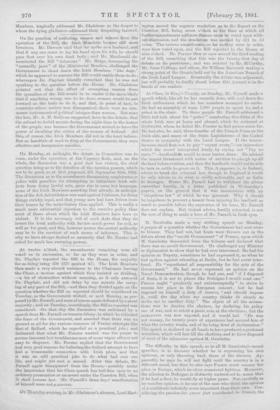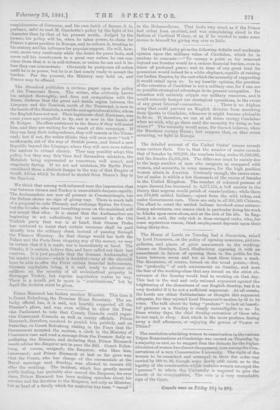The difficulty in this speech, as in all M. Gambetta's
recent- epeeeltes, is to discover whether Ire is expressing his own, opinions, or only throwing back those of the electors. Ap- parently, he says he will not fight until the country is in a. different mood, but then, he also says France must resume her place in Europe, which involves occasional fighting. Moreover, the allusion. to Duleigno is distinctly understood to mean that if he had a fleet, he would fly at higher game. Nor, carefully as he watches opinion, is he one of the men who think the opinion of a -multitude infinitely more important than their own. Con- sideriug the passion for peace just manifested in France, the
auspiciousness of Germany, and his own habit of finesse, it is, perhaps, safer to read M. Gexabetta's policy by the light of his character than by that of his present words. Judged by the former, his policy will be, when he takes power, to claim for France a great position in Europe, and to enforce it, trusting to his oratory and his influence for popular support. He will, how- ever, move very cautiously while the desire for peace lasts, and never call his countrymen to a great war unless he can con- vince them that it is in self-defence, or unless he can end it be- fore they can remonstrate. Obviously he postpones all action until he is in power, but he is at last nearly ready to accept the burden. For the present, the Ministry may hold on, and France may be effaced.



































 Previous page
Previous page